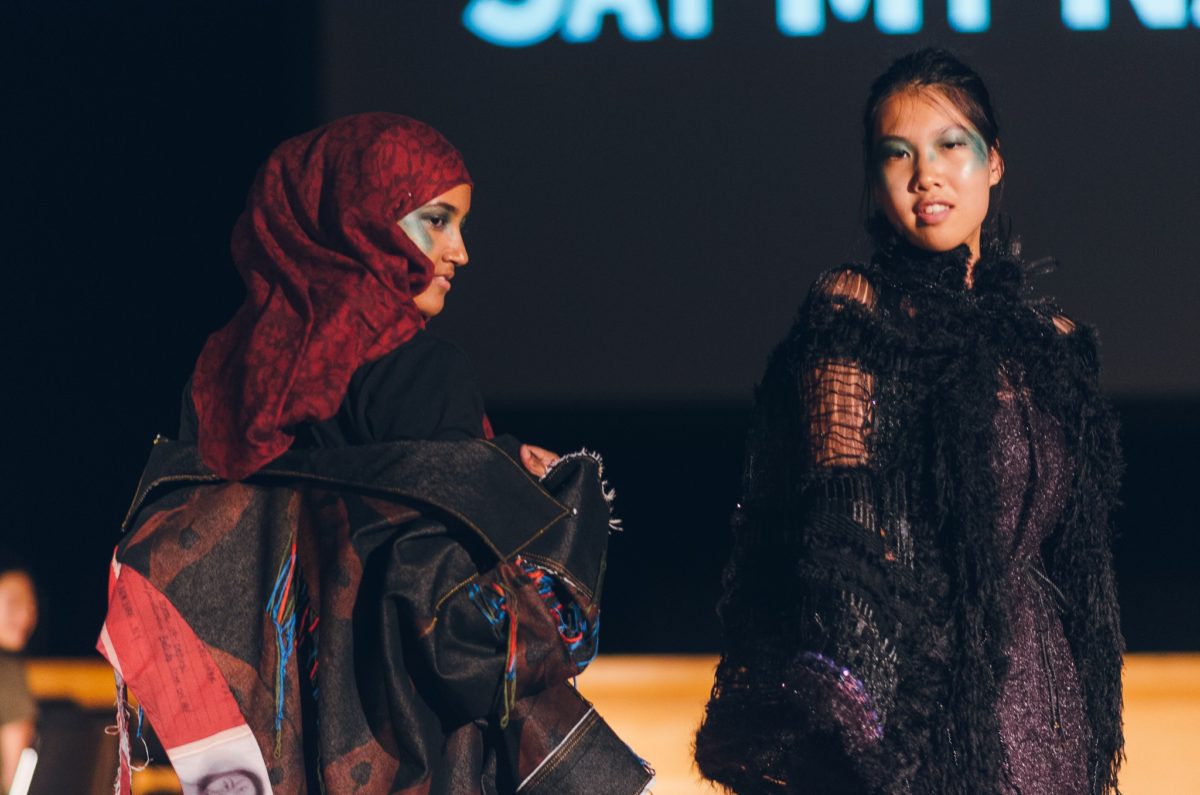By Guest Contributor: Isabelle Lee
Editor’s Note: On November 30, 2018, Saturday Night Live writer Nimesh Patel was performing at Columbia University Asian American Alliance’s cultureSHOCK event. Part-way into a set that contained offensive and harassing material, Patel was asked to leave the stage by event organizers. Patel published his version of events in The New York Times. This is what really happened, according to the former president of Columbia University’s Asian American Alliance.
By now, you may have heard that Saturday Night Live writer Nimesh Patel was asked to leave the stage at cultureSHOCK, an annual charity showcase organized by Columbia University’s Asian American Alliance. By now, you’ve read the public coverage of the story which invoked right-wing outcries over PC culture to blame students for being over-sensitive.
Most likely, what you’ve read thus far about Patel’s performance at cultureSHOCK has been wrong; or, at least, it paints a totally incomplete picture. Here’s what really happened.
cultureSHOCK is a popular event at Columbia that seeks to center and celebrate the Asian American community’s most marginalized members. In past years, it has featured headline performers such as Awkwafina, Anik Khan, and Phil Kaye to uplift Asian American voices and artists that have yet to become mainstream; and, it has raised funds towards community non-profit groups such as the Asian American Women’s Coalition and Asian American Lead.
This year, cultureSHOCK was fundraising for the Asian American Writers’ Workshop. Reflecting that, Nimesh Patel was intentionally invited to celebrate the first Indian American writer for SNL — a reminder of the ongoing need for more diversity and inclusion in media.
Organizers expected Patel would perform a set to reinforce this year’s cultureSHOCK theme of Asian Americans using the power of words to reclaim our community’s voices and to uplift our stories in allyship with other marginalized people. Instead, Nimesh Patel delivered an offensive and harassing set completely at-odds with the event’s mission, before angrily ranting that he was wiser than his audience of students and storming off stage.
Mainstream media has focused on a joke that Patel told during his set, but it has utterly failed to report other important details. For example: about 30 minutes into Nimesh Patel’s set, he started badgering a woman in the audience about what her parents did for a living. She responded multiple times that she had nothing to share about her father because she hasn’t been in contact with him for a while. To the audience it was apparent that she was uncomfortable with the attention and the invasion of her privacy. Yet, Patel continued to push, even despite the growing silence that took over the audience.
Patel persisted in asking multiple inappropriate questions of this audience member, like “Why don’t you know [your father]? Why aren’t you talking to him?” An attempt at comedy quickly soured into unprovoked personal harassment of a student. cultureSHOCK’s ethic is to empower people in their identities and experiences, but Patel’s demeaning performance was instead subjecting an audience member with unwanted public scrutiny, and putting the rest of the audience on edge.
It was at that moment when the three show directors from Columbia University’s Asian American Alliance (AAA) went on stage and let Patel know that his set was ending early.
Student reporting inaccurately described a joke about gay and black identity as the sole reason why Patel was asked to leave, and conservative media outlets have gleefully run with that erroneous framework. As a result, for more than a week now, Columbia University’s Asian American Alliance (AAA) has endured online harassment and threats of violence from people all over the United States.
Every day I’ve personally fallen asleep and woken up to a seemingly incessant barrage of notifications on my phone from strangers sending emails and social media comments — ranging from “You snowflakes are going to melt when you get a real job!”; to uncreative racial slurs; to blatantly telling us to kill ourselves because we are cancer.
Days into this harassment, Patel had yet to make any public remarks condemning it. This is why I was particularly disturbed by Patel’s NY Times op-ed — “I Was Kicked Off Stage by College Students. Did I Deserve it?” — in which he simply thanks his supporters for backing free speech and “challenging” comedy. He makes no mention of the deluge of harassment AAA has faced as a result of his selective account of what happened.
The greatest blunder of news reporting on the controversy was the centering of a single joke about gay and black identity. In his op-ed, Patel repeats the mistaken idea that he was asked to leave due to this single joke, saying: “This was the joke that prompted their decision.” It wasn’t, and Patel makes no mention of all the other jokes he told at cultureSHOCK that absolutely bombed.
Moreover, Patel admits that he wrote this joke six years ago and that it “may be hacky” at this point. As a comedian, Patel should understand that regurgitating jokes created in 2012 — before the nationwide legalization of gay marriage, the founding of Black Lives Matter, and thousands of other relevant events — will feel dated at best, and is more than likely to fail, especially at a show for college students including many who participated in these social media-driven movements firsthand. It’s puzzling that Patel ever expected success with hackneyed material recycled from such a different time and social context.
Throughout his set, Patel was fixated on demeaning other people. His jokes weren’t funny; instead, most were lazy, derivative, and riddled with stereotype. When talking about New Jersey, he described Newark as “literally unlivable”. He provided a racialized narrative around gang culture and Black people as criminals. It echoed President Trump’s statement on “shithole” countries, which suggests that people of color are not fully human.
Patel joked about the climate of American politics as readying for a “race war,” wherein Asian Americans will need to make a “choice” about who we side with – black or white people. This joke recycles the tired understanding of race as a black-and-white binary where Asian Americans are mere bystanders. To an audience aware of historic cross-racial alliances and solidarity work between Asian, Black, and White communities in the fight against white supremacy, as well as the anti-war and environmental movements of the 1960’s, the joke not just falls flat but is irritating. As a student inspired by Asian American movement leaders such as Yuri Kochiyama and Barnard College alumni like Grace Lee Boggs (‘35), I was mortified to listen to Patel’s insistence that we had to choose racial supremacy over shared humanity.
Patel’s set repeatedly and needlessly pitted Asian Americans against the Black community. Referring to his work as a writer for the Oscars a few years back, he remarked on controversies around the lack of diversity in Hollywood. “There weren’t any Indian nominees,” he said. “Why didn’t we get a hashtag?” Patel failed to note that the hashtag in question — #OscarsSoWhite — was a broad critique of the lack of racial diversity in Hollywood and actually did include discussion of Asian Americans.
Patel then joked that if there were Asian versions of recent, critically-acclaimed movies on the African American experience — such as 2013’s 12 Years a Slave directed by Steve McQueen and starring Chiwetel Ejiofor — they would be titled “12 Years a Med Student” or “16 Years a Liquor Store Owner.” Jokes like these perpetuate the Model Minority Myth and trivialize the real, lived experiences of oppression that Asian Americans face.
The Asian American community is not a monolith of med students and immigrant parents who robotically work towards the American Dream. In reality, Asian Americans in New York City have the highest percentage of poverty of all minority communities, according to a 2014 report. Today, there are organizations like DRUM: Desis Rising Up and Moving, Damayan Migrant Workers, CAAAV: Organizing Asian Communities, and Adhikaar, who continue to fight for the rights of low-income, Asian American immigrant communities in New York City. So, while Patel’s jokes were anti-Black, they were also dismissive and harmful to the Asian American identity and experience.
Patel’s outdated comedic style of using majoritarian biases to denigrate people on the outside of mainstream, white culture harms the way we — as Asian Americans — are working to build allyship and solidarity with other racial minority groups. More specifically, it is antithetical to the mission of the Asian American Alliance and the purpose of cultureSHOCK. Contrary to Patel’s claim that he was cut because his comedy is “challenging,” the reverse is actually true: the problem is that Patel is not challenging enough — instead, his material is fully, pedantically mainstream.
Nimesh Patel says: “For the most part you learn what works with a crowd only when it works or doesn’t.” Patel therefore understands that in order to improve a performance, one must learn through experience. When Patel was funny, we laughed for him. When he was not, we were silent. Patel frames himself as the victim of a few power-drunk college students who “control the bullhorn” and who unfairly cut his set early without giving him a chance. But, the audience did in fact give Patel a chance. We gave him around 30 minutes’ worth of a chance, to be exact. Instead of rising to the task, Patel recycled tired and offensive jokes from six years ago while he badgered an audience member, and threw a temper tantrum when this tactic predictably bombed. Cutting a set short when it isn’t working is something comedians face all the time; it’s not only a part of the business but also an important learning opportunity whereby comedians hone their craft and keep up with the times. So it’s ironic that Patel’s acting injured, while the students who unplugged him are being derisively labeled “snowflakes.”
Here’s the basic truth: Nimesh Patel was given ample opportunity at Columbia University to deliver a successful comedy set to an audience of students. He simply failed to do it.
Correction: An earlier version of this essay included a quote from Jerry Seinfeld on the topic of on-campus comedy performances. However, since Seinfeld has given conflicting public statements on this subject, that quote has been removed.
Isabelle Lee (she/her) is a senior at Barnard College studying women’s, gender, and sexuality studies and religion. She has been a member of Columbia University’s Asian American Alliance since her first year, and has served as co-director of cultureSHOCK (’16), president (’17-’18), and is now a senior advisor.
Learn more about Reappropriate’s guest contributor program and submit your own writing here.


